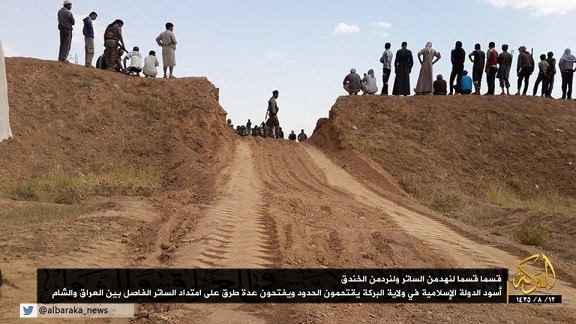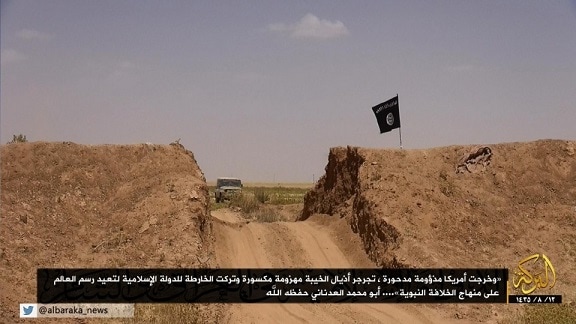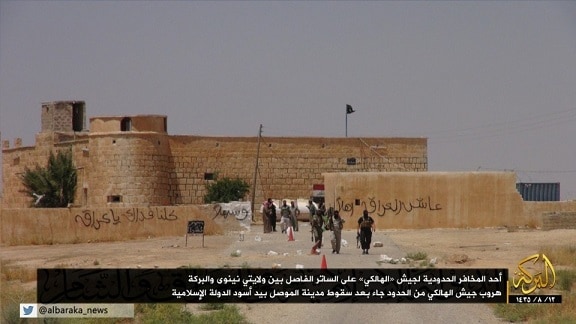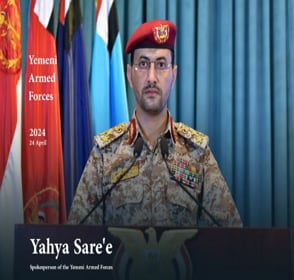In light of the Islamic State of Iraq and Syria's (ISIS) success in taking over the Nineveh province in Iraq,[1] the group began celebrating what it called was the destruction of the "Sykes-Picot border" (i.e. the border between Iraq and Syria). Images of ISIS bulldozing parts of the natural barrier on the border between Syria and Iraq were posted on one of ISIS's Twitter accounts. ISIS also posted images of military vehicles it seized passing freely across the now-open border. Other images showed common people crossing the border from both sides and ISIS noted that they were finally able to travel freely to visit their families after years of being unable to do so because of the "artificial borders" that separated them.
Below are some of the images that were posted on the ISIS Al-Baraka (formerly Al-Hasaka) Twitter account:

ISIS dismantling a section of Syrian-Iraqi border

ISIS opens a gap in the border between Syria and Iraq

ISIS captured military vehicle freely crosses the border

'America left [Iraq]... defeated... and left the map for the Islamic State [of Iraq and Syria] to redraw the world upon the clear path of prophetic Caliphate... Abu Muhammad Al-'Adnani [ISIS spokesman] – May Allah protect him.'

An Iraqi military border outpost between Nineveh (Iraq) and Al-Hasaka (Syria) provinces seized by ISIS

People traveling freely across the border
Source: twitter.com/albaraka_news, June 10, 2014.
Endnote:
[1] See MEMRI JTTM report ISIS Announces Conquest Of Mosul, Acknowledges Death Of Senior Leader, June 11, 2014.





